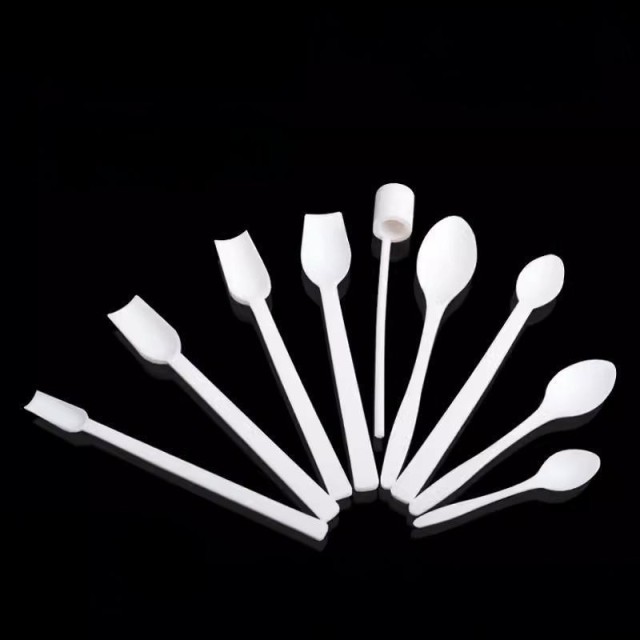
PTFE material
Custom PTFE Teflon Parts Manufacturer for Sampling Solution Sample and Dry Powder Spoons
Item Number : PTFE-22
Price varies based on specs and customizations
- Material
- PTFE
- Specification
- See the form
Shipping:
Contact us to get shipping details Enjoy On-time Dispatch Guarantee.
Why Choose Us
Easy ordering process, quality products, and dedicated support for your business success.
Introduction
The PTFE sampling spoon, also known as a solution spoon, sample spoon, or dry powder spoon, is a versatile tool used in various scientific and analytical processes. These spoons are particularly useful in handling and transferring small quantities of dry powders, especially in laboratory settings where precision and cleanliness are paramount.
- X-ray Fluorescence (XRF) Analysis: Essential for handling and transferring powdered samples into sample cups, ensuring a flat surface for accurate X-ray analysis.
- Material Science and Testing: Involved in the preparation of pressed pellets, where the powder is mixed with a binding agent and pressed to form a homogeneous sample for further testing.
- Chemical and Pharmaceutical Analysis: Used in the precise weighing and handling of chemical compounds and pharmaceutical powders during formulation and quality control processes.
- Environmental Sampling: Useful in collecting and transferring environmental samples such as soil or particulate matter for analysis in environmental laboratories.
Details & Parts
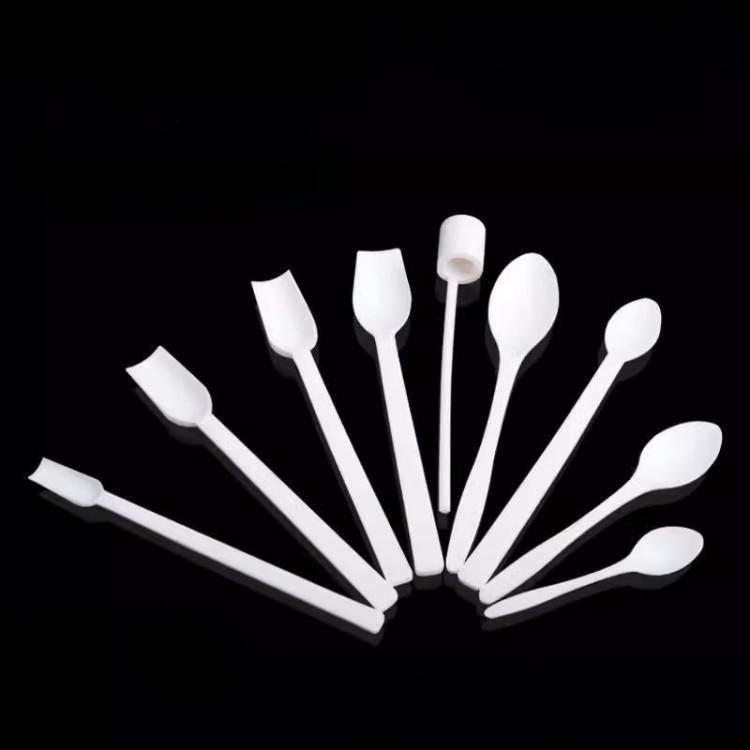
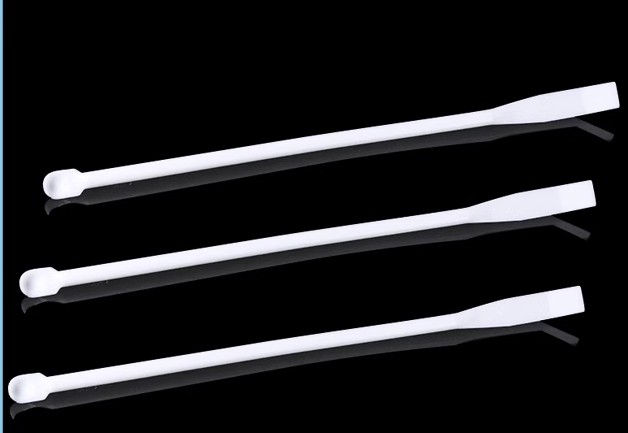
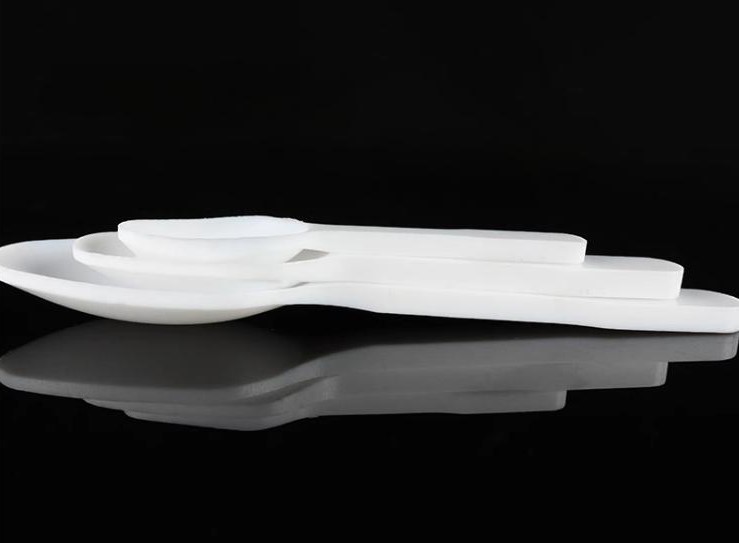
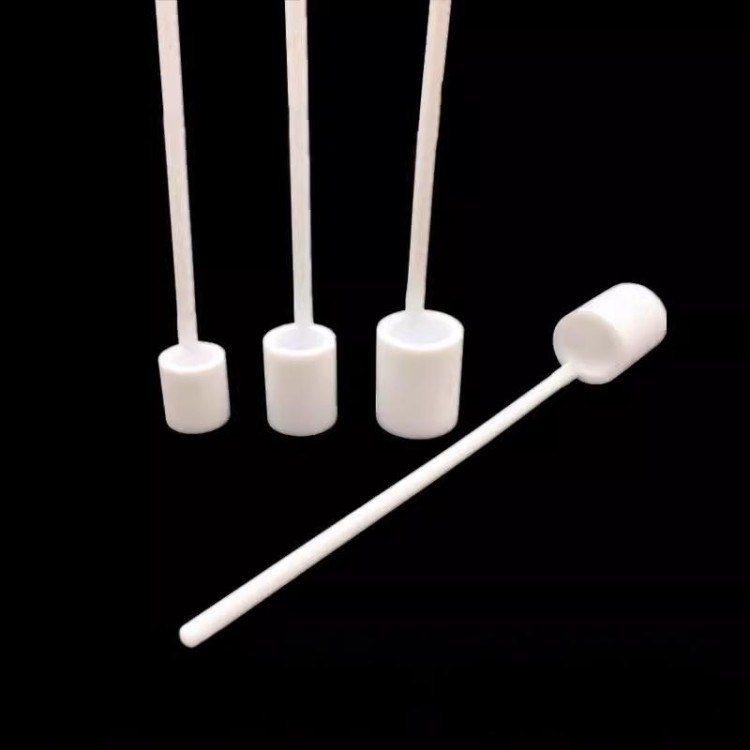
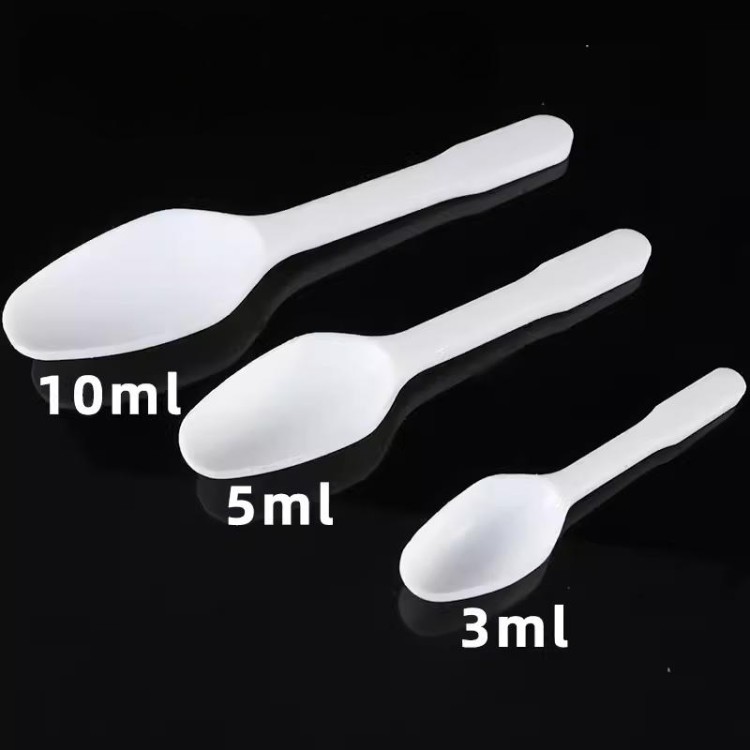
Technical specifications
| Model | Square/round head | Capacity | Spoon head length | Spoon head width | Total length | Spoon handle diameter |
|---|---|---|---|---|---|---|
| Short handle PTFE spoon | round | 3ml | 40mm | 22.3mm | 97.5mm | * |
| Short handle PTFE spoon | round | 5ml | 54mm | 31mm | 134.2mm | * |
| Short handle PTFE spoon | round | 10ml | 70mm | 39.7mm | 169mm | * |
| PTFE dry powder spoon | square | 3ml | 39mm | 16mm | 197mm | * |
| PTFE dry powder spoon | square | 5ml | 50mm | 26mm | 196mm | * |
| PTFE dry powder spoon | square | 10ml | 50mm | 27mm | 196mm | * |
| PTFE dry powder spoon | square | 15ml | 50mm | 33mm | 197mm | * |
| PTFE dry powder spoon | round | 3ml | 38mm | 22.6mm | 110mm | * |
| PTFE dry powder spoon | round | 5ml | 42mm | 27mm | 195mm | * |
| PTFE dry powder spoon | round | 10ml | 50mm | 30mm | 150mm | * |
| PTFE dry powder spoon | round | 15ml | 67mm | 67mm | 198mm | * |
| PTFE solution spoon | * | 3ml | 28mm | 23mm | 180mm | * |
| PTFE solution spoon | * | 5ml | 29mm | 25.5mm | 180mm | * |
| PTFE solution spoon | * | 10ml | 33mm | 31mm | 235mm | * |
| PTFE solution spoon | * | 30ml | 53mm | 37mm | 300mm | 8mm |
| PTFE solution spoon | * | 50ml | 59mm | 45mm | 300mm | 12mm |
| PTFE solution spoon | * | 100ml | 71mm | 54mm | 350mm | 12mm |
| PTFE solution spoon | * | 250ml | 94mm | 66mm | 400mm | 12mm |
| PTFE solution spoon | * | 500ml | 127mm | 79mm | 450mm | 12mm |
| PTFE solution spoon | * | 1000ml | 150mm | 98mm | 500mm | 14mm |
| More styles can be customized... | ||||||
Advantages
- Chemical Stability and Corrosion Resistance: PTFE sampling spoons are renowned for their exceptional chemical stability, making them ideal for handling a wide range of substances without degradation. This feature ensures that the spoons can withstand exposure to strong acids, alkalis, and various organic solvents, enhancing their durability and longevity in laboratory settings.
- High Temperature Resistance: With the ability to operate at temperatures up to 250°C, these spoons are perfect for high-temperature applications, ensuring that they do not melt or deform during use. This characteristic is crucial for labs conducting experiments at elevated temperatures.
- Versatility in Sample Handling: Whether dealing with dry powders or solutions, PTFE spoons are versatile enough to handle both, making them a valuable tool in any laboratory. Their design allows for precise measurement and transfer of samples, enhancing the accuracy of experiments.
- Excellent Low-Temperature Performance: Even at extremely low temperatures, down to -196°C, PTFE spoons maintain their mechanical toughness and flexibility, making them suitable for cryogenic applications. This is particularly useful in labs that work with frozen samples or conduct research in low-temperature environments.
- Long-Term Durability and Cost-Effectiveness: Due to their resistance to wear and tear, PTFE sampling spoons offer long-term durability, reducing the need for frequent replacements. This not only saves costs but also minimizes waste, aligning with sustainable laboratory practices.
Designed for You
KinTek provide deep custom made service and equipment to worldwide customers, our specialized teamwork and rich experienced engineers are capable to undertake the custom tailoring hardware and software equipment requirements, and help our customer to build up the exclusive and personalized equipment and solution!
Would you please drop your ideas to us, our engineers are ready for you now!
Trusted by Industry Leaders

FAQ
What Is Polytetrafluoroethylene (PTFE)?
What Is A PTFE Sampling Spoon Used For?
Why Is PTFE A Preferred Material For Laboratory Spoons?
How Should I Clean A PTFE Sampling Spoon?
Can PTFE Sampling Spoons Be Used With Any Type Of Powder?
Are PTFE Sampling Spoons Reusable?
What Precautions Should Be Taken When Using A PTFE Sampling Spoon?
What Are The Key Properties And Characteristics Of PTFE?
What Are The Applications Of PTFE?
What Are The Advantages Of Using PTFE?
Are There Any Limitations Or Considerations When Using PTFE?
4.8 / 5
Quick delivery, durable and cost-effective. Great for spectroscopic analysis.
4.7 / 5
High-quality, precise measurement, non-toxic. Ideal for handling pharmaceutical powders.
4.6 / 5
Excellent chemical stability and corrosion resistance. Perfect for environmental sampling.
4.9 / 5
Non-stick surface, low friction. Ensures accurate sample weights and reduces waste.
4.8 / 5
Versatile for handling both dry powders and solutions. Enhances the accuracy of experiments.
4.7 / 5
Exceptional resistance to strong acids, alkalis, and organic solvents. Enhances durability in laboratory settings.
4.9 / 5
Safe for biological and pharmaceutical samples. Great design for precise sample handling.
4.8 / 5
Operates at temperatures up to 250°C. Ideal for labs conducting experiments at elevated temperatures.
4.7 / 5
Maintains mechanical toughness even at extremely low temperatures. Suitable for cryogenic applications.
4.8 / 5
Contributes to the overall efficiency of laboratory operations. Helps in maintaining a smooth workflow.
4.9 / 5
Beneficial for applications in pharmaceutical, biological, and nutrition operations. Enhances the accuracy of sample transfer.
4.7 / 5
Reduces sample contamination and makes cleaning effortless. Great for handling various substances in the laboratory.
4.8 / 5
Versatile and reliable for precise sample handling. Saves costs and aligns with sustainable laboratory practices.
4.7 / 5
Essential for handling and transferring powdered samples into sample cups. Ensures flat surface for accurate X-ray analysis.
4.8 / 5
Useful in collecting and transferring environmental samples for analysis. Ensures reliable and accurate results.
4.9 / 5
Ideal for precise weighing and handling of chemical compounds. Enhances accuracy in formulation processes.
4.6 / 5
Great for spectroscopy sample preparation. Enables the mixing of powder with an infrared transparent medium for analysis.
4.8 / 5
Enhances the precision, safety, and efficiency of sample handling. Crucial for pharmaceutical and nutrition operations.
4.9 / 5
Critical for material science and testing. Provides precise measurement and transfer of samples for further testing.
4.7 / 5
Great for preparing pressed pellets. Ensures a homogenous sample for accurate material testing.
REQUEST A QUOTE
Our professional team will reply to you within one business day. Please feel free to contact us!
Related Products
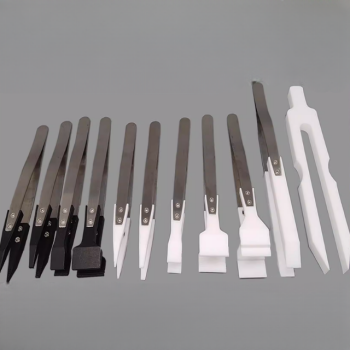
Custom PTFE Teflon Parts Manufacturer for PTFE Tweezers
PTFE tweezers inherit the excellent physical and chemical properties of PTFE, such as high temperature resistance, cold resistance, acid and alkali resistance, and corrosion resistance to most organic solvents.

Custom PTFE Teflon Parts Manufacturer for PTFE Measuring Cylinder 10/50/100ml
PTFE measuring cylinder are a rugged alternative to traditional glass cylinders. They are chemically inert over a wide temperature range (up to 260º C), have excellent corrosion resistance and maintain a low coefficient of friction, ensuring ease of use and cleaning.
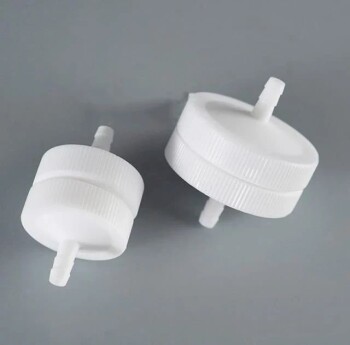
Custom PTFE Teflon Parts Manufacturer for Sampling Filters
PTFE filter element is a commonly used industrial filter element, mainly used to filter corrosive media such as high-purity chemical substances, strong acids, and strong alkalis.
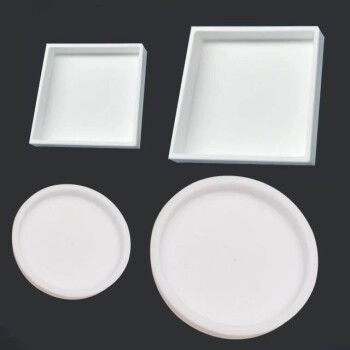
Custom PTFE Teflon Parts Manufacturer for PTFE Containers
PTFE container is a container with excellent corrosion resistance and chemical inertness.
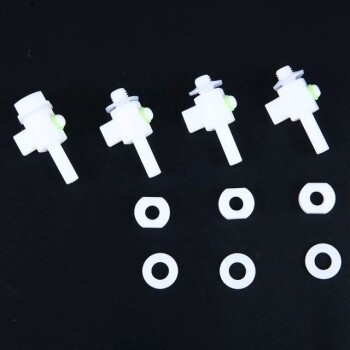
Custom PTFE Teflon Parts Manufacturer for Air Valve Applications
PTFE small air valve for gas-liquid sampling and sampling bag for sample collection.
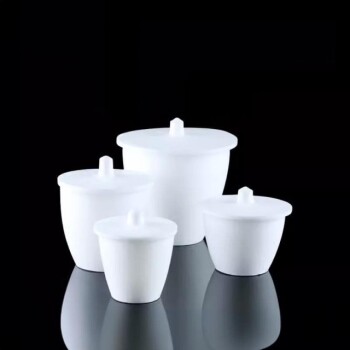
Custom Machined and Molded PTFE Teflon Parts Manufacturer with PTFE Crucible and Lid
PTFE crucibles, made from pure Teflon, offer chemical inertness and resistance from -196°C to 280°C, ensuring compatibility with a wide range of temperatures and chemicals. These crucibles feature machine-finished surfaces for easy cleaning and prevention of contamination, making them ideal for precise laboratory applications.
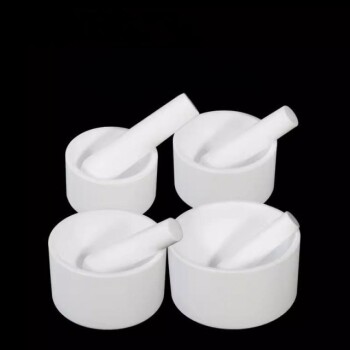
Custom PTFE Teflon Parts Manufacturer Grinding Bowl
PTFE is renowned for its exceptional chemical resistance, thermal stability, and low friction properties, making it a versatile material in various industries. The PTFE grinding bowl, specifically, finds applications where these properties are crucial.
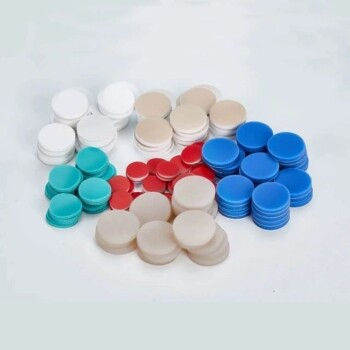
Custom PTFE Teflon Parts Manufacturer for Gaskets and More
Gaskets are materials placed between two flat surfaces to enhance the seal. To prevent fluid leakage, sealing elements are arranged between static sealing surfaces.

Custom PTFE Teflon Parts Manufacturer F4 Conical Flask Triangular Flask 50 100 250ml
The PTFE triangular flask, also known as a Teflon reagent bottle, is a robust, chemical-resistant alternative to traditional glass bottles, suitable for handling both acids and alkalis. These bottles are unbreakable, lightweight, and feature a leak-proof screw cap, making them ideal for laboratory use.
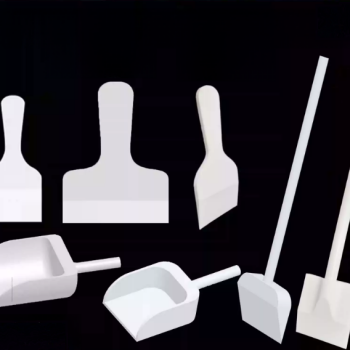
Custom PTFE Teflon Parts Manufacturer for Acid and Alkali Resistant Chemical Powder Material Scoops
Known for its excellent thermal stability, chemical resistance and electrical insulating properties, PTFE is a versatile thermoplastic material.
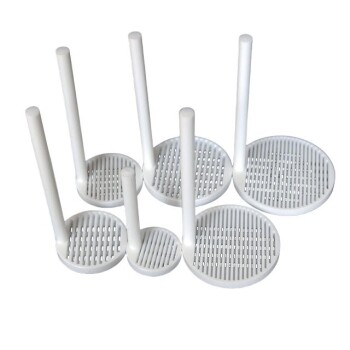
Custom PTFE Teflon Parts Manufacturer for Cleaning Racks
PTFE cleaning racks are mainly made of tetrafluoroethylene. PTFE, known as the "King of Plastics", is a polymer compound made of tetrafluoroethylene.

Custom PTFE Teflon Parts Manufacturer PTFE Beaker and Lids
The PTFE beaker is a laboratory container that is resistant to acid, alkali, high and low temperatures and is suitable for temperatures ranging from -200ºC to +250ºC. This beaker has excellent chemical stability and is widely used for heat treatment samples and volume analysis.
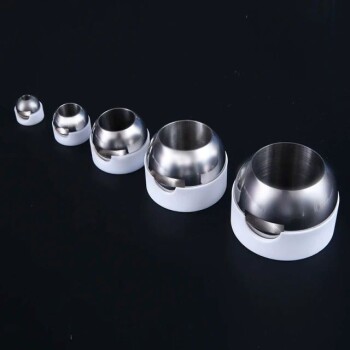
Custom PTFE Teflon Parts Manufacturer for PTFE Ball Valve Seat
Seats and inserts are vital components in the valve industry. As a key component, polytetrafluoroethylene is usually selected as the raw material.

Custom PTFE Teflon Parts Manufacturer for Culture Dish and Evaporation Dish
The PTFE culture dish evaporating dish is a versatile laboratory tool known for its chemical resistance and high-temperature stability. PTFE, a fluoropolymer, offers exceptional non-stick properties and durability, making it ideal for various applications in research and industry, including filtration, pyrolysis, and membrane technology.
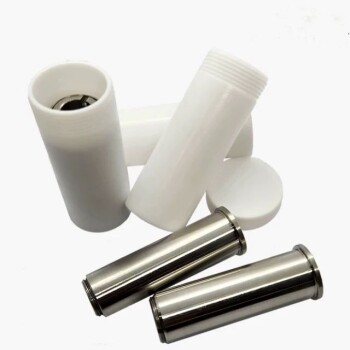
Custom PTFE Teflon Parts Manufacturer for PTFE Bottle Oil Fume Sampling Tube
PTFE products are generally called "non-stick coating", which is a synthetic polymer material that replaces all hydrogen atoms in polyethylene with fluorine.
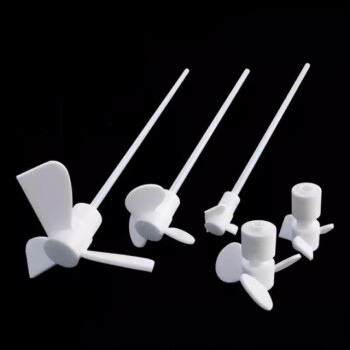
Custom PTFE Teflon Parts Manufacturer Laboratory High Temperature Mixing Paddle Mixer
The PTFE mixing paddle mixer is a versatile and robust tool designed for laboratory use, particularly in environments requiring high resistance to chemicals and extreme temperatures. Crafted from high-quality PTFE, this mixer boasts several key features that enhance its functionality and durability.
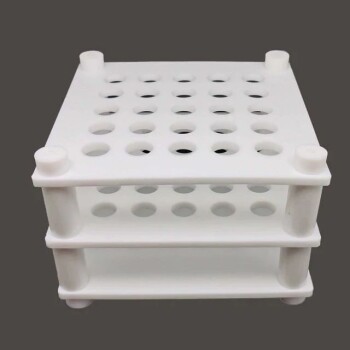
Custom PTFE Teflon Parts Manufacturer for Centrifuge Tube Racks
The precision-made PTFE test tube racks are completely inert and, due to the high temperature properties of PTFE, these test tube racks can be sterilized (autoclaved) without any problems.

Custom PTFE Teflon Parts Manufacturer for Magnetic Stirring Bar
The PTFE magnetic stirring bar, made from high-quality PTFE, offers exceptional resistance to acids, alkalis, and organic solvents, coupled with high-temperature stability and low friction. Ideal for laboratory use, these stirring bars are compatible with standard flask ports, ensuring stability and safety during operations.
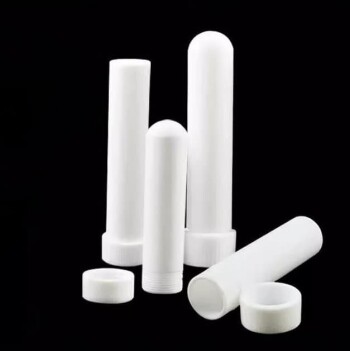
Custom PTFE Teflon Parts Manufacturer for Centrifuge Tubes
PTFE centrifugal tubes are highly valued for their exceptional chemical resistance, thermal stability, and non-stick properties, making them indispensable in various high-demand sectors. These tubes are particularly useful in environments where exposure to corrosive substances, high temperatures, or stringent cleanliness requirements are prevalent.
Related Articles

Exploring the Advanced Capabilities of Spark Plasma Sintering (SPS) Furnaces
Dive into the world of Spark Plasma Sintering (SPS) furnaces, their innovative technology, and applications in material science. Learn how SPS furnaces revolutionize the sintering process with high-speed, efficiency, and precision.

Comprehensive Guide to Spark Plasma Sintering Furnaces: Applications, Features, and Benefits
Explore the advanced features and applications of Spark Plasma Sintering Furnaces (SPS) in material science. Learn how SPS technology offers rapid, efficient, and versatile sintering for various materials.

Exploring Spark Plasma Sintering Furnace (SPS): Technology, Applications, and Advantages
Dive into the comprehensive guide on Spark Plasma Sintering Furnace (SPS), covering its technology, applications in materials science, and significant advantages over traditional sintering methods.

Polytetrafluoroethylene (PTFE): How low friction coefficient promotes industrial progress
Explore the unique advantages of polytetrafluoroethylene (PTFE)'s low coefficient of friction and analyze how it promotes progress and innovation in industrial technology in terms of reducing wear and improving equipment efficiency.

PTFE's high temperature and corrosion resistance: Why it is indispensable in industry
The unique advantages of polytetrafluoroethylene (PTFE) in high temperature and corrosion resistance analyze why it has become an indispensable material in industry, especially in applications in harsh environments.

Sample Preparation Guidelines for Various Analytical Instruments
Detailed instructions for preparing samples for NMR, MS, Chromatography, IR, UV, ICP, Thermogravimetric, XRD, TEM, SEM, and other instruments.

Infrared Spectroscopy Sample Preparation Operation Guide
A comprehensive guide on preparing samples for infrared spectroscopy analysis, covering gas, liquid, and solid samples.

X-Ray Fluorescence Spectrometer: Powder Compression Method for Sample Preparation
This article discusses the powder compression method in XRF spectral analysis, focusing on sample preparation techniques and equipment.

Advantages and Applications of Rotary Evaporators
Explore the benefits and diverse applications of rotary evaporators in various industries.

PTFE seals: the invisible guardian of industrial leakage prevention
PTFE Seals are used to prevent liquid or gas leakage and are widely used in valves, pumps, and piping systems.

Performance and application of polytetrafluoroethylene (PTFE) in high temperature environment

Why Most PELLET PRESS XRF SAMPLE PREPARATION Fail: Common Issues and Solutions
Discover the common pitfalls in PELLET PRESS XRF SAMPLE PREPARATION and learn effective solutions to ensure accurate results. Covers particle size, contamination, binder choice, and more.